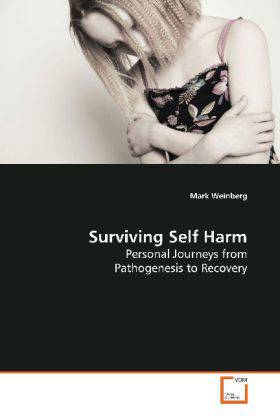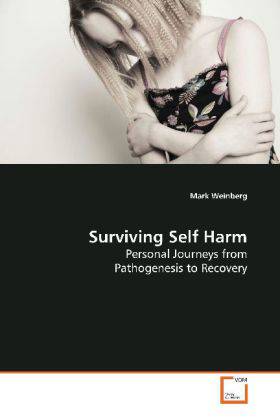
- Afhalen na 1 uur in een winkel met voorraad
- Gratis thuislevering in België vanaf € 30
- Ruim aanbod met 7 miljoen producten
- Afhalen na 1 uur in een winkel met voorraad
- Gratis thuislevering in België vanaf € 30
- Ruim aanbod met 7 miljoen producten
Zoeken
Surviving Self Harm
Personal Journeys from Pathogenesis to Recovery
Mark Weinberg
Paperback | Engels
€ 48,45
+ 96 punten
Omschrijving
The last decade has witnessed a marked increase in
the incidence of self harm. Along with this
proliferation has come increased public and clinical
interest in understanding and treating these
seemingly counterintuitive behaviors. This book
focuses on the personal experiences of survivors in
order to gain insight into the experience of
transition towards, living with, and recovery from
self harm. The author utilized the Grounded Theory
method to develop a theoretical model describing a
process whereby: (a) exclusive and/or intrusive
experiences play a central role in precipitating
pathogenesis of deliberate self-harm, (b) a sense of
loss of control results from these
exclusive/intrusive experiences, (c) self-harming
behaviours occur in an attempt to manage this sense
of loss of control, and (d) continued
exclusionary/intrusive experiences act to maintain
self-harming behaviours. Recovery occurs in the
context of an environmental shift, leading to the
experience of social inclusion, which facilitates a
sense of control.
the incidence of self harm. Along with this
proliferation has come increased public and clinical
interest in understanding and treating these
seemingly counterintuitive behaviors. This book
focuses on the personal experiences of survivors in
order to gain insight into the experience of
transition towards, living with, and recovery from
self harm. The author utilized the Grounded Theory
method to develop a theoretical model describing a
process whereby: (a) exclusive and/or intrusive
experiences play a central role in precipitating
pathogenesis of deliberate self-harm, (b) a sense of
loss of control results from these
exclusive/intrusive experiences, (c) self-harming
behaviours occur in an attempt to manage this sense
of loss of control, and (d) continued
exclusionary/intrusive experiences act to maintain
self-harming behaviours. Recovery occurs in the
context of an environmental shift, leading to the
experience of social inclusion, which facilitates a
sense of control.
Specificaties
Betrokkenen
- Auteur(s):
- Uitgeverij:
Inhoud
- Aantal bladzijden:
- 84
- Taal:
- Engels
Eigenschappen
- Productcode (EAN):
- 9783639143454
- Uitvoering:
- Paperback
- Afmetingen:
- 220

Alleen bij Standaard Boekhandel
+ 96 punten op je klantenkaart van Standaard Boekhandel
Beoordelingen
We publiceren alleen reviews die voldoen aan de voorwaarden voor reviews. Bekijk onze voorwaarden voor reviews.








